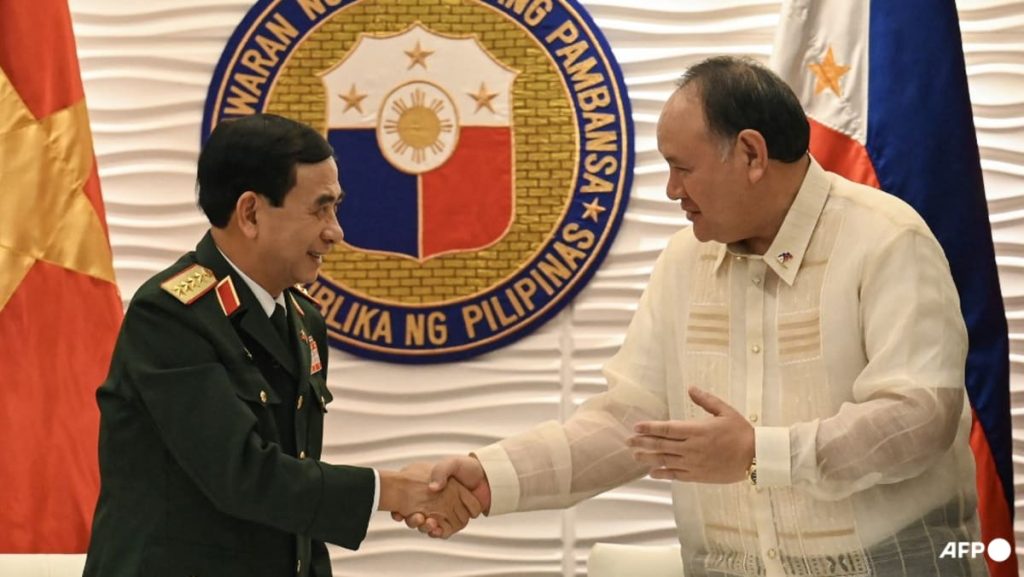Vietnam is facing a delicate balancing act when it comes to its relationship with China, needing to oppose actions by its neighbor that it deems as infringing on its sovereignty while still maintaining strong ties with the country. This dynamic has been forged over decades by the ruling Communist Parties of both nations. In an effort to maintain peace and stability in the South China Sea, Vietnamese and Chinese coastguards recently conducted their third joint patrol in the northern part of the Gulf of Tonkin. ASEAN, the Southeast Asian bloc, plays a key role in this, with discussions focused on ensuring freedom of navigation and aviation in the region through concrete cooperation and interaction.
The delicate relationship between Vietnam and China becomes especially complex when it comes to the issue of overlapping claims in the Spratly Islands in the South China Sea. Despite these disputes, both countries have expressed a willingness to work together to tackle these challenges. In fact, earlier this month, the coastguards of Vietnam and the Philippines, who each occupy atolls and reefs in the region, conducted their first-ever joint exercises in Manila. These exercises included simulations of fire-fighting drills and search-and-rescue exercises, highlighting the potential for collaboration despite conflicting claims.
Maintaining close relations with China while also asserting its own sovereignty is a delicate dance for Vietnam. With its history of deep economic ties to China, Vietnam must carefully navigate this relationship to ensure that its interests are protected while also avoiding potential conflicts. Forging stronger alliances within ASEAN and working collaboratively with partners in the region is seen as crucial in ensuring peace and stability in the South China Sea. By emphasizing the importance of international law and cooperation, Vietnam aims to secure its position in the region while also fostering a peaceful resolution to disputes.
The joint patrols and exercises conducted by Vietnamese and Chinese coastguards serve as a significant step towards establishing trust and cooperation between the two nations. By working together on maritime security issues, both countries are demonstrating a commitment to resolving conflicts peacefully and ensuring freedom of navigation in the region. These joint efforts also highlight the role of ASEAN in promoting dialogue and cooperation among its member states, underscoring the importance of regional unity in addressing shared challenges.
Despite the complexities of their relationship, Vietnam and China are making strides towards cooperation and collaboration in the South China Sea. By engaging in joint patrols and exercises, both countries are signaling their commitment to resolving disputes peacefully and upholding international law. The willingness of Vietnam and China to work together, despite their conflicting claims, bodes well for the future of the region and offers hope for a peaceful resolution to longstanding disputes. As both countries continue to navigate the challenges of their relationship, their actions in the South China Sea serve as a testament to the potential for cooperation and stability in the region.


